Abiotic Factors
Abiotic factors are the non-living components of an ecosystem that have a significant impact on the organisms living within it. These factors can include physical elements such as water, sunlight, temperature, soil, and air, as well as chemical elements like nutrients and pollutants. Understanding abiotic factors is crucial for comprehending how ecosystems function and how living organisms adapt to their environment.
Study Guide
- Definition: Define abiotic factors and provide examples of different types of abiotic factors.
- Impact: Explain the impact of abiotic factors on the organisms within an ecosystem. Discuss how these factors influence the distribution and behavior of living organisms.
- Adaptations: Explore the various ways in which living organisms adapt to abiotic factors. Include examples of specific adaptations, such as how desert plants conserve water or how animals cope with extreme temperatures.
- Interactions: Describe the interactions between different abiotic factors and their combined effect on an ecosystem. Discuss how changes in one abiotic factor can affect other elements in the ecosystem.
- Human Impact: Investigate the impact of human activities on abiotic factors and the resulting consequences for ecosystems. Discuss pollution, deforestation, and climate change as examples of human-induced changes to abiotic factors.
- Case Studies: Analyze specific ecosystems and their abiotic factors. Provide case studies of different ecosystems, such as rainforests, deserts, or aquatic environments, and examine the unique abiotic factors that shape these ecosystems.
Key Concepts
Ensure that you understand the following key concepts related to abiotic factors:
- The difference between abiotic and biotic factors
- How abiotic factors influence the availability of resources in an ecosystem
- The concept of ecological tolerance and how it relates to abiotic factors
- The role of abiotic factors in the water cycle, carbon cycle, and other biogeochemical cycles
- The importance of maintaining a balance of abiotic factors for the sustainability of ecosystems
By thoroughly studying and understanding abiotic factors, you will gain a deeper insight into the intricate relationships between the non-living components of an ecosystem and the living organisms that depend on them.
[Abiotic Factors] Related Worksheets and Study Guides:
.◂Science Worksheets and Study Guides Sixth Grade. Plant reproduction
Study Guide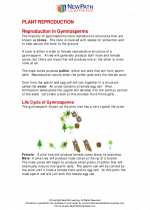 Plant reproduction
Plant reproduction  Activity Lesson
Activity Lesson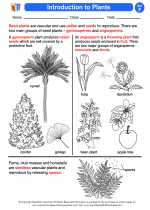 Introduction to Plants
Introduction to Plants  Worksheet/Answer key
Worksheet/Answer key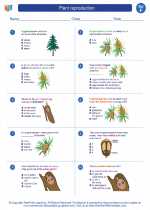 Plant reproduction
Plant reproduction  Worksheet/Answer key
Worksheet/Answer key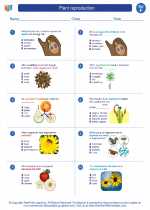 Plant reproduction
Plant reproduction  Worksheet/Answer key
Worksheet/Answer key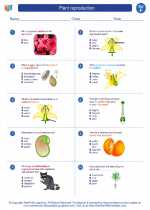 Plant reproduction
Plant reproduction  Vocabulary/Answer key
Vocabulary/Answer key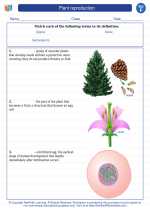 Plant reproduction
Plant reproduction 

 Activity Lesson
Activity Lesson
 Worksheet/Answer key
Worksheet/Answer key
 Worksheet/Answer key
Worksheet/Answer key
 Worksheet/Answer key
Worksheet/Answer key
 Vocabulary/Answer key
Vocabulary/Answer key

The resources above cover the following skills:
LIFE SCIENCE
From Molecules to Organisms: Structures and Processes
Students who demonstrate understanding can:
Use argument based on empirical evidence and scientific reasoning to support an explanation for how characteristic animal behaviors and specialized plant structures affect the probability of successful reproduction of animals and plants respectively.